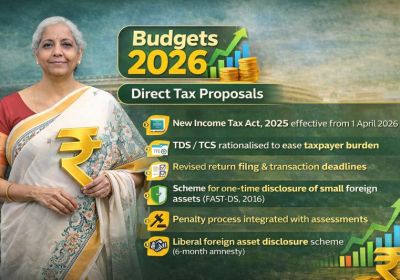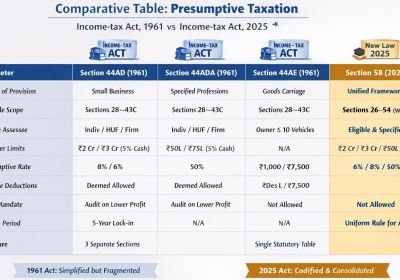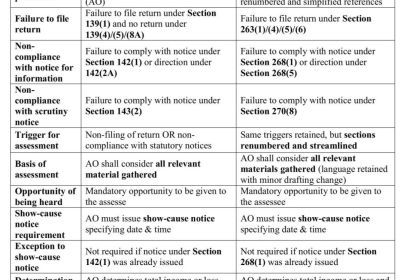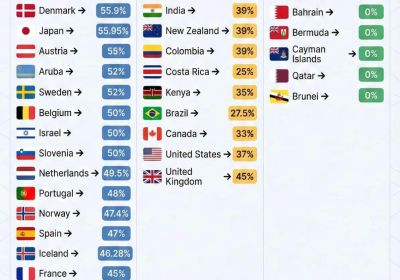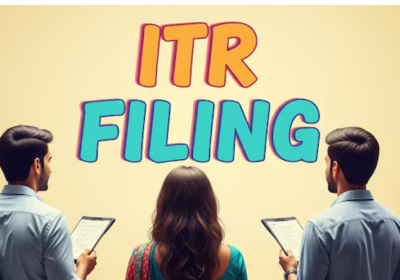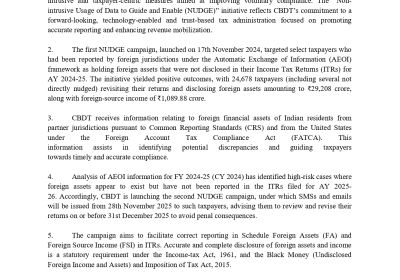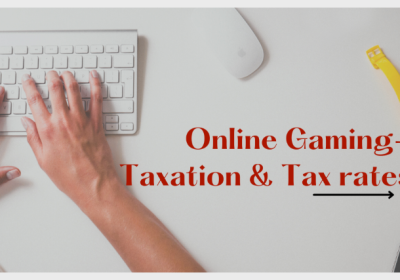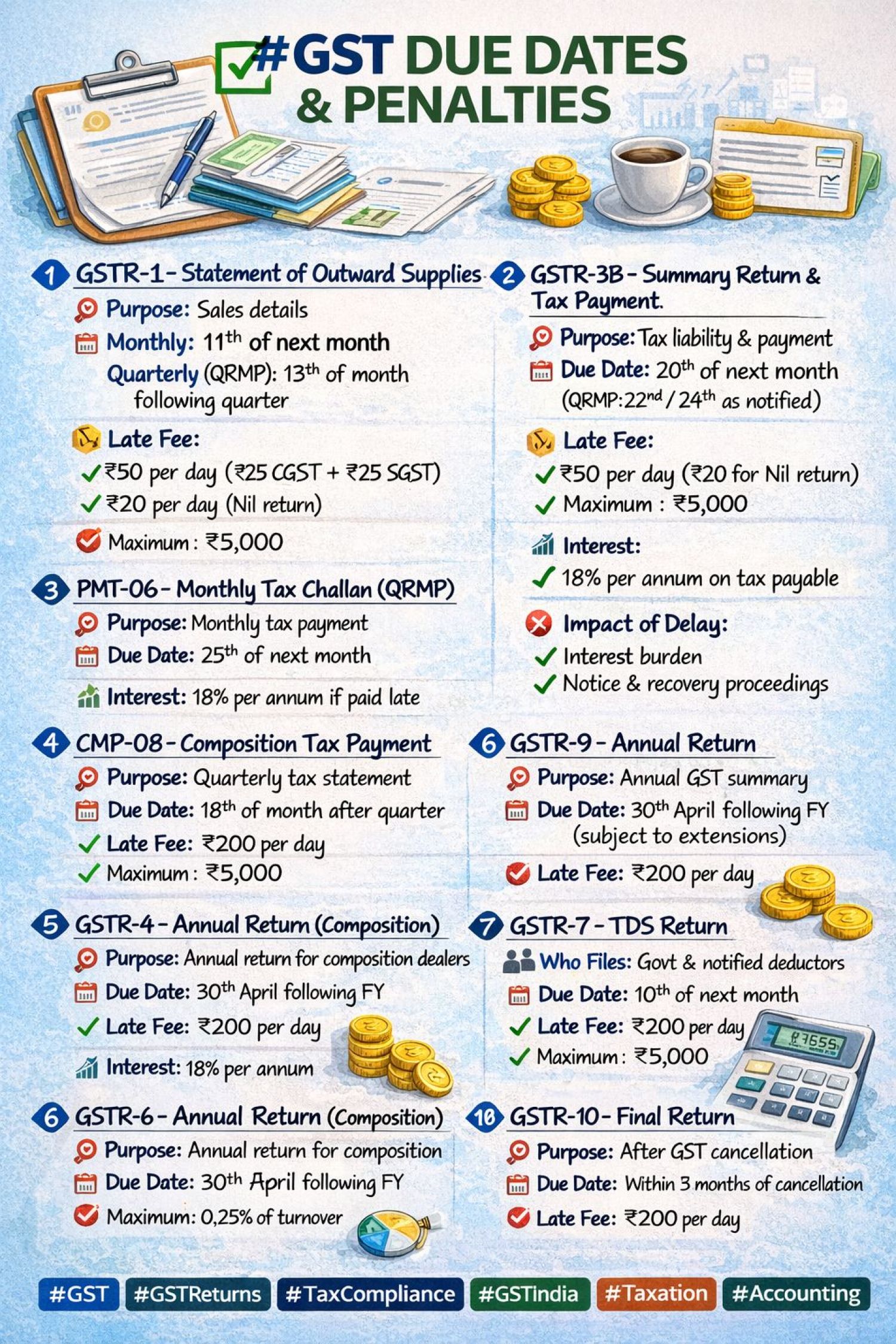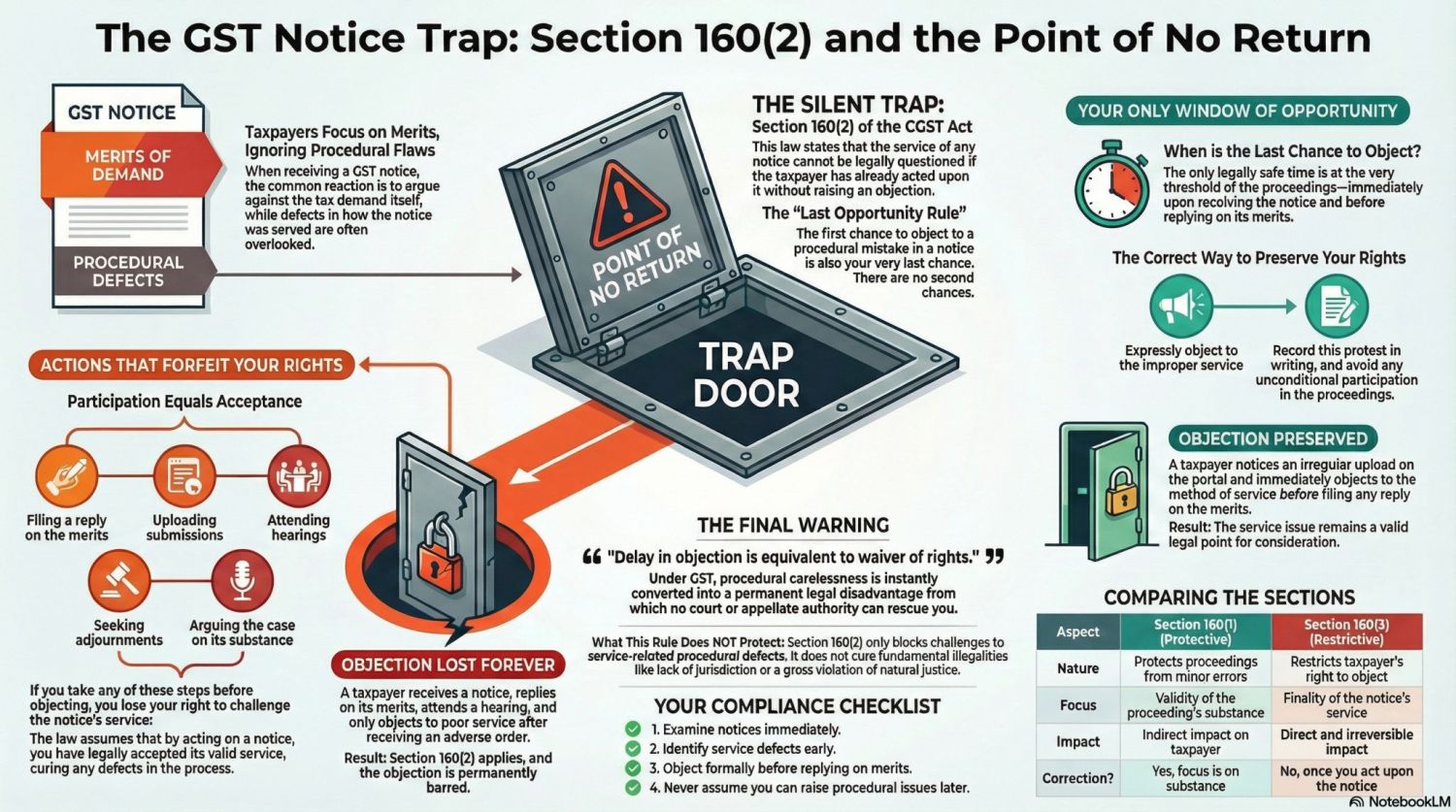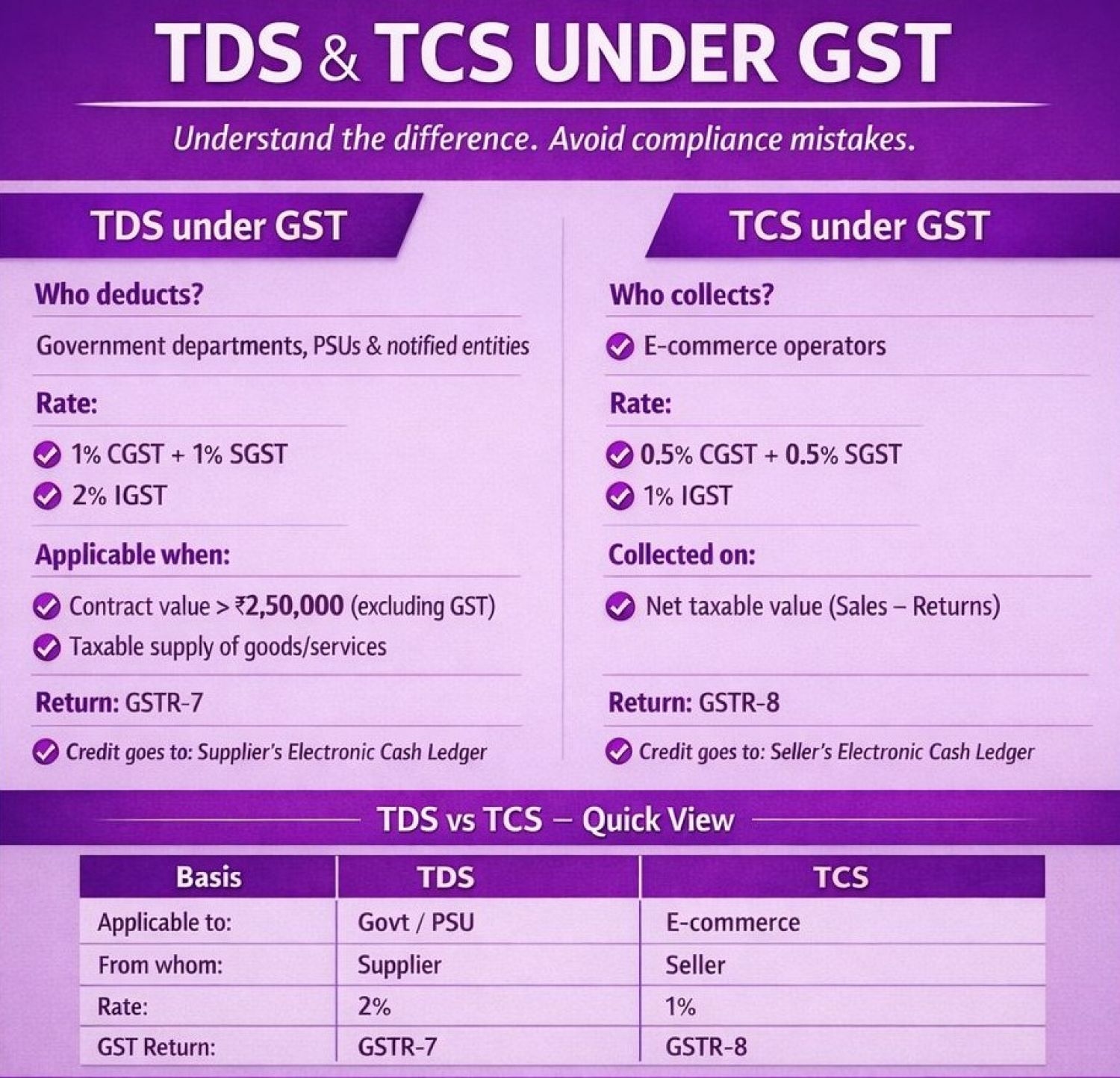Table of Contents
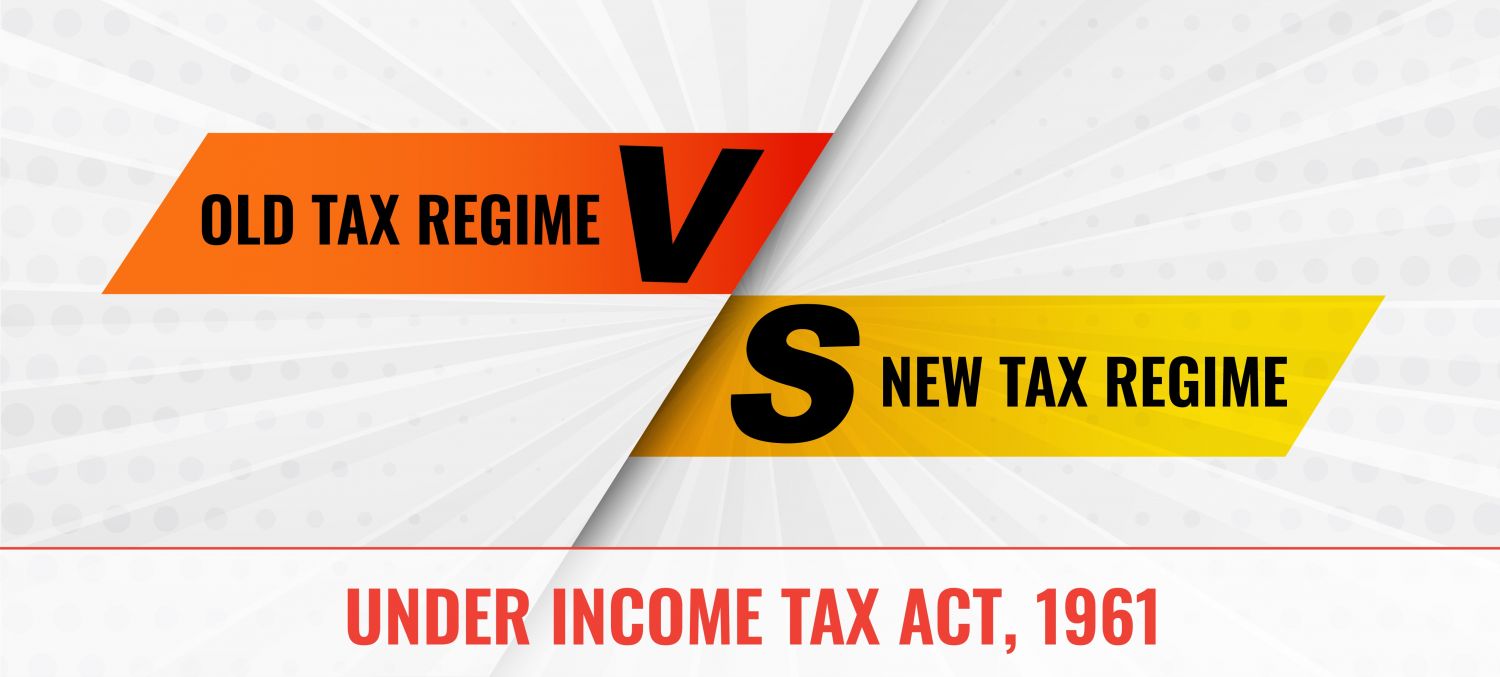
Old Tax Regime vs New Tax Regime
The Finance Act 2020 made a number of amendments to our direct tax structure. The implementation of the New Tax Regime U/S 115BAC of the Income Tax Act of 1961 was the most significant change. On the one hand, the new regime offers lower slab rates, but it also strips assessees of many deductions and claims.
This scheme, however, is completely optional; taxpayers can continue to use the old method of calculating taxes, in which they can claim all applicable deductions and exemptions.
So, do you confused the difference between the old and new tax regimes? Do you have any questions about the new system? Are you confused on which new tax system is more beneficial for you? If you're confused by all of this and aren't sure which taxing regime to choose, read the article below to learn more about the two alternatives.
Income Taxation as per Old Tax Regime
Individuals under the age of 60, between 60 and 80, and above 80 years old had different exemption levels under the previous tax scheme.
Moreover, the old method allows assessees to claim a range of deductions and exemptions on their tax-saving investments, interest paid on housing loans, and other expenses, as well as exemptions on other allowances. The below are the tax rates under the old tax regime:
|
Applicable Old income slabs |
Rates of taxation for persons above 80 years |
Rates of taxation for below 60 years |
Rates of taxation for between 60 Year & 80 years |
|
Up to INR 2,50,000 |
Nil |
Nil |
Nil |
|
INR 2,50,001 to INR 3,00,000 |
Nil |
5% |
Nil |
|
INR 3,00,001 to INR 5,00,000 |
Nil |
5% |
5% |
|
INR 5,00,001 to INR 10,00,000 |
20% |
20% |
20% |
|
Above INR 10,00,000 |
30% |
30% |
30% |
Income Taxation as per New Tax Regime
According with new tax regime, income tax rates are the same for all age groups. In the new tax system, the income slabs are smaller, and there are seven of them. The following table summarizes the income tax rates under the new tax system:
|
Applicable New income Tax slabs |
Applicable Tax Rates |
|
Up to INR 2,50,000 |
Zero/Nil |
|
INR 2,50,001 to INR 5,00,000 |
5 Percentage |
|
INR 5,00,001 to INR 7,50,000 |
10 Percentage |
|
INR 7,50,001 to INR 10,00,000 |
15 Percentage |
|
INR 10,00,001 to INR 12,50,000 |
20 Percentage |
|
INR 12,50,001 to INR 15,00,000 |
25 Percentage |
|
Above INR 15,00,000 |
30 Percentage |
As it can be seen in the above table, the new tax regime steadily increases tax rates from one tax bracket to another.
Exemptions & Deductions to be forgone while chose for new taxation regime in India
The government believes that the Act includes a lot of exemptions and deductions that make adherence by the assessee and the administration of tax laws by the tax authorities a time-consuming process.
As a consequence, the new tax system requires the elimination of a number of deductions and exemptions. As a reason, it's essential to measure the impact of any deductions or exemptions that must be given up in order to benefit from lower tax rates. The below are some of the most popular tax exemptions/deductions that cannot be claimed under the new regime:
* Deduction for Professional tax
* HRA- House Rent allowance
* Children Education allowance
* LTA- Leave Travel allowance
* Interest paid on housing loan in case of self-occupied property
* Standard deduction applicable on income under the head salary
* Deduction for investments or expenses under Chapter VI-A like:
* The Deduction u/s 80C towards contribution to Public Provident Fund, principal on housing loan, life insurance premium, payment of children’s tuition fees etc.
* other applicable deductions towards interest on education loan, medical expenditure, medical insurance premium, donations, etc.
What if in case person Opting for the new tax regime
Based on the applicable exemptions/ deductions and sources of income, a HUF or individual taxpayer (resident or non-resident) may opt for the new income tax regime. It is possible to switch between the old and new tax regimes on an annual or one-time basis. The frequency with which the new tax regime is chosen is determined by the source of revenue during the fiscal year. The same has been discussed below:
* Where income includes income from business or profession:
If an HUF or individual has income under the head a business or profession, once they chose a alternative to avail new taxation regime for a FY has been exercised, then the new rates of income tax shall apply for Next subsequent years also. But the income tax Act provides such Taxpayers 1 single Chose of switching back to old taxation System. Once above switchback alternative has been executed, then again new taxation system cannot be opted for in a future period under life time unless the Taxpayer ceases to have income from profession or a business.
* Where income does not include income from business or profession:
If a person or a HUF does not have a source of income from a business or profession, the option can be taken on an annual basis. Employers are required to withhold tax from salaried employees' salaries before they are paid. As a consequence, the employee will advise his or her employer of his or her preferred tax regime.
An employee could choose between old and new tax rates and inform his or her employer at the beginning of the financial year or when starting a new job during the year. However, when filing the Income Tax return, the employee can change the tax regime initially selected
For illustration, an employee may choose a new tax regime at the start of the fiscal year, and his employer may take tax from his salary based on the new regime's slab rates. However, he makes tax-saving investments throughout the year, such as PPF contributions, Sukanya Samriddhi Scheme contributions, and at the time of filing his Income Tax Return. he realises that the old tax system is more beneficial to him. In this case, he might choose the old tax system when filing his income tax return, even if his employer deducted taxes according the new taxation regime.
Continuing with the Old Tax Regime
The old tax system has been in operation for a long time, and assessees are likely to be better familiar with it. However, whether or not they should use the old method is primarily determined by their tax bracket and the tax-saving investments they possess in their portfolio.
Because this regime allows them to deduct tax-saving investments, it's a great idea for them to choose this choice if their portfolio contains important quantity of them. They can then claim a deduction of up to INR 1.5 lakhs under Section 80C, reducing their income tax burden substantially.
Taxpayers can avail of a further deduction of INR50,000 for investments made in NPS u/s 80CCD(1B). Other benefit of the old taxation system include LTA exemption, HRA exemption, & deductions such as deductions for home loan interest up to Rs 2,00,000/- & deductions for charitable contributions, to name a few. As a consequence, assessees who are able to claim deductions and exemptions under the the old Income Tax regime.
Opting for the New Income Tax Regime
Assessees may be charged a lower tax rate under the new tax regime Subject to their income level. According to the old method, if a taxpayer's total taxable income is INR 6,75,000, he will be taxed at a rate of 20%. Whereas, under the new tax rates, the maximum rate that may be imposed on his income is only 10%. The new tax system progressively raises the tax rate as one's income level rises. This shows that the new system is more suited to low-income groups, freshmen who want to avoid paperwork, and retirees.
Furthermore, since the new tax system does not allow any deductions from taxable income, somebody with fewer tax-saving investments may benefit more from the new tax rates. The assessees having a small value of home loan can also consider the lower taxation regimes.
HUF & Individuals can adopt new income taxation rates under the Income Tax. if assessees Income tax liability is lesser low in case of new tax system compared to the old tax system.
Important key points to keep in our mind before picking up alternative for any of one taxation system.
Before selecting between the new regimes and old regimes, it would be fruitful to follow the following steps:
* Recognise the income tax exemptions & deductions available & applicable to you.
* Calculate your taxable income before and after taking income tax deductions into consideration & determine the tax liabilities as per the old & the new regimes and thereafter decide accordingly.
* Moreover, consider your long-term objective & strategise your investments suitably. It’s not desire to avoid investing in tax-saving alternatives just for chose for new tax scheme.
Conclusion
Both regimes have their own benefits and drawbacks. The old system provided numerous exemptions and deductions under specific segments; however, some of these needed people to invest in tax-saving investment options, which helped instil a sound investment habit. The new regime, on the other hand, allows employees greater flexibility and attempts to streamline the process.
Whether the new scheme or the old one is preferable for an assessee depends on the income composition and deductions available, and each individual must make his or her own decision depending on his or her situation. Before selecting between the two taxation systems, the alternatives must be carefully assessed, and online tax calculators can be used to estimate the tax liability under each approach.

